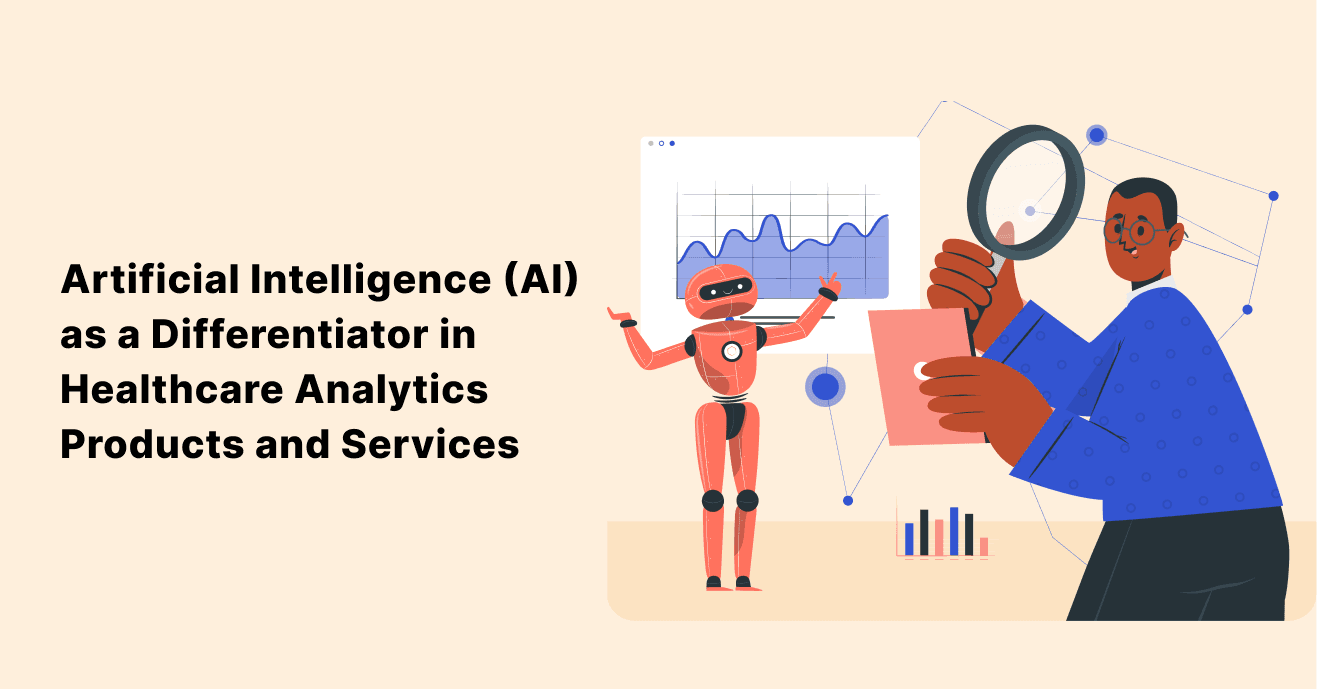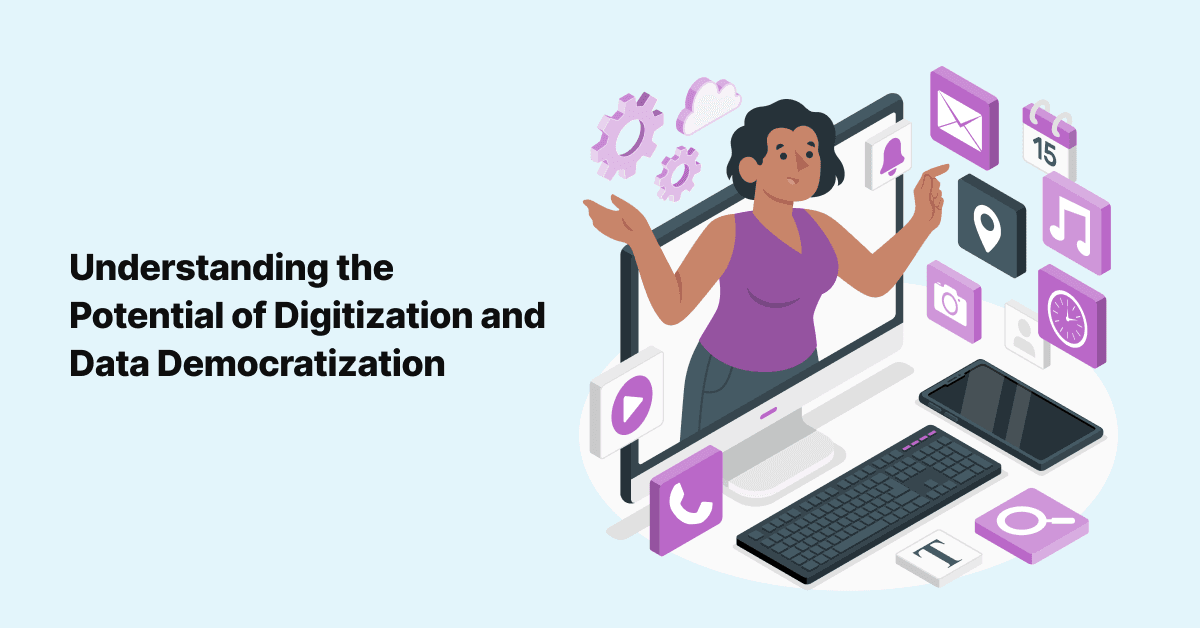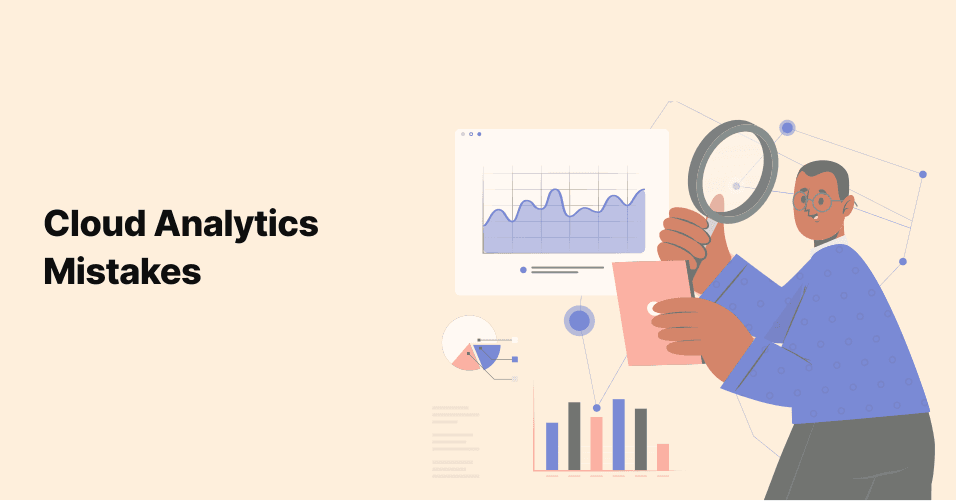
Artificial Intelligence (AI) as a Differentiator in Healthcare Analytics Products and Services
Artificial Intelligence (AI) is rapidly transforming the modern healthcare landscape, playing a crucial role …

The global personalized medicine market size was valued at USD 538.93 billion in 2022 and is projected to grow at a compound annual growth rate (CAGR) of 7.20% from 2023 to 2030, driven by advancements in digital health technologies, genomics, and data analytics. Data digitization and democratization are revolutionizing and personalizing healthcare, fundamentally altering how information is accessed and leveraged. This transformation empowers Personalized Healthcare by unlocking the latent value of patient data. By minimizing human error and embracing innovative technologies that bridge the gap between patients and care providers, organizations can deliver precise, tailored care throughout the entire care continuum, from diagnosis to cure.
The democratization of healthcare data has led to the emergence of patient-driven research initiatives, where individuals can contribute their health data to scientific studies, accelerating medical discoveries and advancing personalized treatments. The emergence of Artificial Intelligence and machine learning in healthcare has already begun transforming medical imaging interpretation, drug discovery, and clinical decision support, leading to more accurate diagnoses and personalized treatment recommendations. Several health systems have started working on data democratization initiatives aiming to address health disparities by ensuring equitable access to healthcare information and resources for underserved populations, ultimately improving health outcomes and reducing healthcare inequalities of their patient populations.
Data democratization empowers every employee with access to pertinent datasets, unleashing the complete potential of the workforce to make real-time data-driven decisions. This fosters a transparent organizational culture where information flows freely, fostering a sense of ownership and shared responsibility for the company's success. This not only boosts productivity but also enhances employee engagement and morale, cultivating a happier and more motivated workforce.
As the healthcare sector embraces digital technology, it ushers in a new era of innovation, paving the way for advanced treatments, diagnostics, and preventive measures. This transformative journey towards data digitization not only enhances accessibility to healthcare but also fosters tailored and efficient care delivery.
The inception of the HITECH Act in 2009 propelled the widespread adoption of Electronic Health Records (EHRs) and fortified privacy measures under HIPAA regulations. This pivotal initiative catalyzed the transition from paper-based health records to digital formats, marking a significant milestone in healthcare's digital evolution. The digitization of healthcare data builds upon this momentum, empowering IT leaders and providers to streamline processes, adapt workflows, and drive the industry towards its next transformative phase. However, despite rapid technological uptake, ensuring the seamless flow of data remains a challenge.
Enter data democratization – a concept gaining traction as a catalyst for driving data-centric business transformation across sectors. By democratizing data access, healthcare organizations can unlock the full potential of digitalization, enabling informed decision-making, fostering collaboration, and ultimately propelling the industry towards a future where healthcare is truly personalized, efficient, and data-driven. Welcome to the dawn of a new era in healthcare – where digital innovation revolutionizes care delivery and transforms lives.
When it comes to data exchange and interoperability, the healthcare sector has lagged behind other industries. Historically, payment structures prioritized quantity over quality of care, neglecting the necessity for information exchange, leading to additional expenses or duplicated tests.
However, as the healthcare industry shifts towards payment models based on outcomes and regulatory efforts like the 21st Century Cures Act gain momentum, the importance of data exchange and interoperability in facilitating comprehensive care has gained acknowledgment.
Innovations like FHIR (Fast Healthcare Interoperability Resources) offer potential for accelerating the advancement of data sharing, thus promoting genuine democratization of data access within healthcare. Here's how data democratization benefits the primary stakeholders in healthcare:
Benefits For providers:
Benefits For Payers:
Benefits for Patients
Data enablement and its subsequent use has been happening for a long time. But we are currently in the era of predictive analytics, marking a departure from traditional hurdles to data accessibility. As healthcare institutions transition towards patient-centered care, data emerges as the primary resource, with predictive analytics serving as the guiding force.
Interested to learn more about the revolution? Talk to our healthcare data analytics experts for more!
Join over 3,200 subscribers and keep up-to-date with the latest innovations & best practices in Healthcare IT.

Artificial Intelligence (AI) is rapidly transforming the modern healthcare landscape, playing a crucial role …

Data-driven decisions are the way of the future. Not only is there wisdom in using facts versus assumptions to …

The healthcare sector has undergone transformative changes following COVID-19, with a marked increase in …